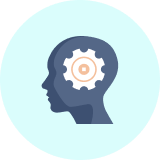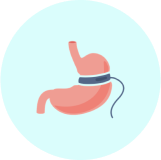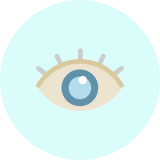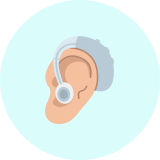Your mental wellbeing is important and at TUH we want to give focus to this topic.
Queensland Mental Health Week, in the second week of October, offers an opportunity for all of us to take time to boost our mental wellbeing. Focusing on your mental wellbeing shouldn’t be a once a year event.
Your mental wellbeing is the unique way in which you handle your emotions, respond to stress and also your feeling of self-worth and outlook on life. Having a healthy sense of mental wellbeing has many benefits. It lifts your mood, promotes resilience in difficult situations and helps you get the most out of life.
The increasing prevalence of mental health issues in our community encourages all of us to think about our mental health and wellbeing, regardless of whether we may have a lived experience of mental illness or not.
Did you know?
One in five of us will experience a mental health condition this year.
Three out of ten of us will be seriously affected.
At least a third of young people will have had an episode of mental illness by the age of 25.
Mental disorders and suicide account for almost 15% of Australia's total health burden, which equates to 374,541 years of healthy life lost (DALYs).
Worryingly, approximately two thirds of people with a mental illness receive no treatment in any 12 month period.
Making big improvements in your mental health can mean focusing on some relatively simple yet proven things; treating your body right, getting some decent sleep, being grateful and learning something new.
Eat well and keep moving
Taking care of your body is one of the most important things you can do for your mental health.
How we think and feel depends directly on how well our brain is functioning. A healthy, well-nourished and rested body provides the foundation for your mind to function at its best.
Research shows that people who exercise regularly have better mental health and emotional wellbeing, and lower rates of mental illness.
And enjoying a balanced diet and consuming alcohol in moderation ensures our minds and bodies are nourished and improves energy levels, sleep patterns and general health.
Getting enough shut eye?
Sleep and mental health are closely connected. Sleep deprivation affects your psychological state and mental health. And those with mental health issues are more likely to have insomnia or other sleep disorders.
Sleep deprivation has been shown to be the equivalent of a blood alcohol of 0.1, reducing hand-eye coordination and reaction time. And chronic sleep deprivation can increase the risk of accidents or injury, while also reducing your overall wellbeing.
So, it's really important that we are aware of how to maintain good sleep habits such as reducing screen time, waking up at the same time each day and monitoring your alcohol intake.
An attitude filled with gratitude
Gratitude is the ability to experience life as a gift, it is the quality of being thankful and showing appreciation for what we have.
Showing gratitude improves mood and leads to lower rates of stress and depression and it can also help develop greater levels of optimism. Showing gratitude can also improve social connections in our recognition for what others have do for us. Those who actively express gratitude tend to be more engaged in exercise and eating well, which leads to higher energy levels, better sleep and a stronger immune system.
Three good things
A common and very simple way to tune in and notice the good in our lives is the "Three Good Things” practice.
For 21 consecutive days, take two minutes to write down three new things each day that you are grateful for and reflect on these.
Learn for life
There’s a growing amount of evidence that lifelong learners are some of the healthiest, happiest people around.
Keeping your mind engaged with new ideas and experiences is an important part of your mental wellbeing. This could be as easy as doing a daily Sudoku, learning a new skill through an online tutorial or listening to an informative podcast. Why is this? Well, your ability to reason and make good decisions depends on how well your brain interprets and processes information.
Doing regular mental challenges trains these mental pathways, improving their effectiveness and refreshing old or unhelpful thought patterns. Research is showing that lifelong learning may improve brain function and prevent or delay the symptoms of dementia.
For more tips on mental wellbeing visit www.qldmentalhealthweek.org.au.
If you feel you need some support with your mental health contact your GP or Beyond Blue www.beyondblue.org.au.





































